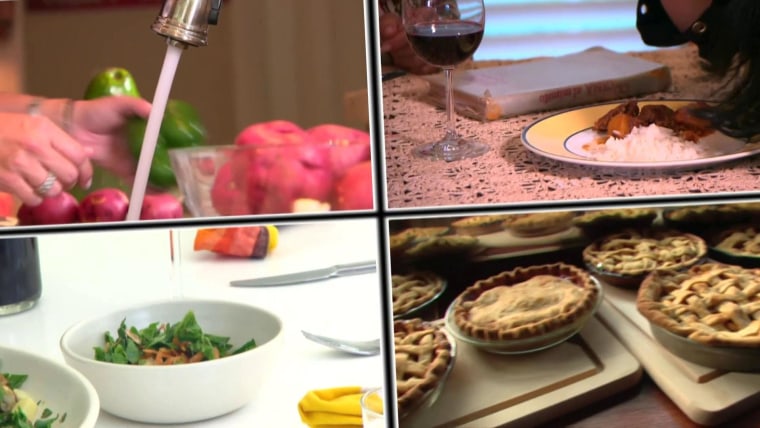Can 6 Month Old Baby Have Beef Broth
Out with the old, in with the new! New parents may be curious about what to feed their babies — and when do it. When can babies eat eggs? Are avocados safe? How much should my baby eat?
White rice cereal is out, peanut butter oatmeal is in. Store-bought baby-food carrots are out, homemade organic kale puree is in. The list goes on and on.
Parents are also wary of packaged baby food after a report suggested some may contain dangerous levels of toxic metals.
But what foods can babies eat without worry? When making your own baby food, what should you serve? How do you know what to feed your 6-month-old?
Best food for babies
Here are my top five recommendations for what to feed your baby, and two foods to avoid.
Avocados
It's not only trendy to start avocado as a first food; it's also extremely healthy. Avocados are high in potassium, fiber, and healthy monounsaturated fats, which are good for hearts of all ages. You can puree or fork-mash a bit of avocado and offer your baby a small spoonful. Have the camera ready as you may get a funny face the first few times you offer it! Keep trying. She or he will eventually take to it. Around 8 or 9 months of age, diced pieces of avocado are fun for her to pick up, smash, and self-feed. My 1-year-old son loves pieces of avocado with scrambled eggs for breakfast.

Fish
Many kids and adults dislike fish because they didn't get used to eating it as an infant. The oils in fatty fish are high in omega-3 fatty acids, which are extremely valuable for brain and eye development, and infants are growing big, fatty brains! Fish is also a great natural source of protein and contains vitamin D—a vitamin that most kids need more of. Salmon is definitely the most important and healthiest fish to feed infants and toddlers. It's also low in mercury (compared to other fish).
Remember to thoroughly cook all fish. It's perfectly fine to lightly season it so your whole family can enjoy. Initially, puree then fork-mash for your baby. You can add a little moisture with water, breast milk, or organic chicken or vegetable broth, if needed. At 7 months, my son loved his salmon mixed with pureed sweet potatoes. As your infant begins self-feeding, just break the salmon into tiny pieces and let him self-feed. Be careful to ensure there are no hidden fish bones, as even a tiny bone can be a potentially dangerous choking hazard for an infant.
Nut butter
More and more research is demonstrating the importance of introducing nut products early and frequently to prevent nut allergies in children. One study showed that introducing peanut products as early as 4 to 6 months to high-risk infants dramatically decreased the chance that they would later develop a peanut allergy.
Please note: Parents should talk with their pediatricians about exactly when and how to give peanut products, experts say, especially if babies have eczema, which may put them at higher risk for developing a peanut allergy.
Once cleared, however, nut butters are delicious, healthy, and convenient. Nutrient-wise, they offer vegetarian protein, vitamin E, and healthy monounsaturated fats.
So, how exactly do you introduce peanut products to your 6-month-old? Consult with your pediatrician, first. If you get the go-ahead, peanut butter oatmeal is my favorite way. I like to melt one teaspoon of creamy peanut butter (choose one with only peanuts, no sugar!) into one ounce of baby whole-grain oatmeal, making sure the mixture isn't too sticky and thick.
Around 8 months, you can start introducing creamy nut butter by itself, in an extremely thin layer, on either your finger or a spoon to lick off. Once your baby is self-feeding, you can spread a very thin layer on thinly sliced whole-grain bread, cut into tiny pieces, and observe as he picks them up and self-feeds. Sticky and fun!
Eggs
Eggs are a perfect single-ingredient food. Easy to prepare, they are a convenient and healthy source of protein, fat, and other nutrients such as biotin and iron, which are important for growth and a healthy body. Eggs are a top source of protein for children and are easy to make and serve. You can give your baby the entire egg (yolk and white), if your pediatrician recommends it.
Around 6 months, puree or mash one hard-boiled or scrambled egg and serve it to your baby. For a more liquid consistency, add breast milk or water. Around 8 months, scrambled egg pieces are a fantastic finger food. I even make a few ahead of time, keep them in the fridge and just reheat in the microwave for a fast and easy breakfast (or anytime) option for all ages.
Green Vegetables
Green veggies have almost every vitamin and mineral you can think of. People who eat green vegetables are linked with lower disease rates and a healthier weight. Calorie for calorie, leaf for leaf, deep dark greens such as kale, Swiss chard and spinach pack more nutrition than any other food.
Simply steam or boil, and then puree. Peas, green beans, zucchini, spinach, broccoli, and asparagus are especially easy to steam (or boil) and then puree, fork-mash or cut into tiny pieces. When you introduce green veggies around 6 months of age and continue offering them regularly, your infant will grow into a toddler and older child who loves green veggies and eats them often.
Foods to avoid giving babies

White rice cereal
For years white rice cereal was recommended as the first food for baby. But there's little protein, no fiber, and no flavor, and it simply primes young palates for a lifetime of eating white carbs. Yes, it has iron and zinc, but we now know that meat is a better early source of iron for babies. I'm recommending tossing the white rice cereal in favor of other whole foods as the first solid food that your baby tastes.
If you do choose to give your baby infant cereal, chose brown over white options: They are more nutritious, and they get your infant used to the taste of whole grains. Try brown rice, oatmeal (with peanut butter or fresh fruit) or quinoa.
Juice
During my residency at UCLA, one of the most common questions I was asked was, "When can I give my baby juice?"
Maybe it was a sign of the times or maybe it was the patient population, but my answer was always, "Never." Even diluted juice only gets infants used to the taste of sweet beverages. And 100% fruit juice contains no fiber, so it's not a substitute for fresh whole fruit.
What's a better beverage for infants to drink (other than breast milk and/or formula)? Water! Start your baby on sips of plain water around 6 months of age. Babies that drink water grow into toddlers and children who drink water. That's a healthy habit for life!

This story was originally published in 2016 and has been updated.
Source: https://www.today.com/parents/5-surprising-foods-you-should-be-feeding-your-baby-2-t86486